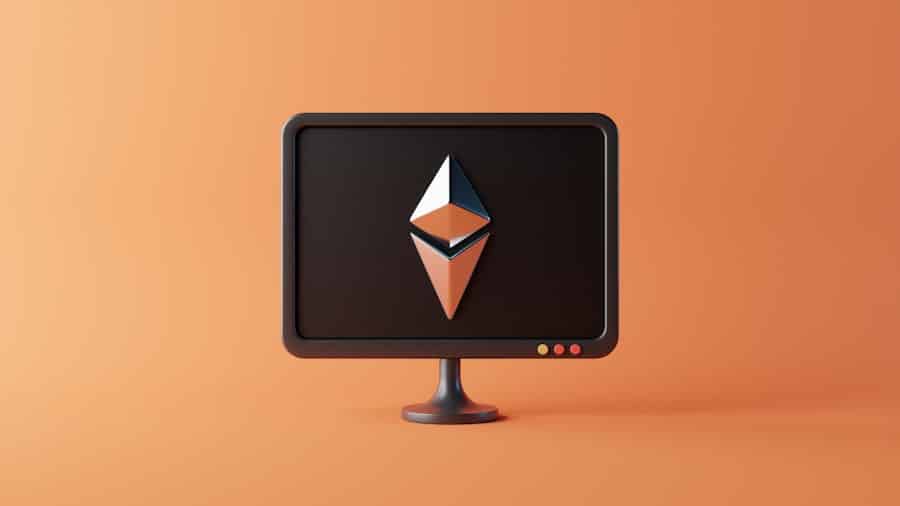The advent of artificial intelligence (AI) has revolutionized numerous sectors, and relationship coaching is no exception. In recent years, the integration of AI into virtual environments has opened new avenues for individuals seeking guidance in their personal relationships. This innovative approach combines the analytical prowess of AI with the immersive experiences offered by virtual worlds, creating a unique platform for relationship coaching.
As people increasingly turn to technology for support, AI-powered relationship coaching presents an opportunity to enhance emotional intelligence, improve communication skills, and foster healthier connections. Virtual worlds, characterized by their interactive and engaging nature, provide a fertile ground for relationship coaching. These digital spaces allow users to explore their emotions and interpersonal dynamics in a safe and controlled environment.
By leveraging AI algorithms, coaches can analyze user interactions, identify patterns, and offer tailored advice that resonates with individual needs. This synergy between AI and virtual worlds not only democratizes access to relationship coaching but also personalizes the experience, making it more relevant and impactful for users.
Key Takeaways
- AI-powered relationship coaching in virtual worlds is a new and innovative approach to providing support and guidance in personal relationships.
- AI plays a crucial role in relationship coaching by analyzing data, providing personalized recommendations, and offering 24/7 support to users.
- The advantages of AI-powered relationship coaching include accessibility, affordability, and the ability to process large amounts of data, while limitations include the lack of human empathy and understanding.
- Virtual worlds have a significant impact on relationship coaching by providing a safe and immersive environment for users to practice and improve their interpersonal skills.
- Ethical considerations in AI-powered relationship coaching include privacy concerns, the potential for bias in AI algorithms, and the need for transparency in the use of AI technology.
The Role of AI in Relationship Coaching
AI plays a multifaceted role in relationship coaching, serving as both a facilitator and an analytical tool. At its core, AI can process vast amounts of data to identify trends and insights that may not be immediately apparent to human coaches. For instance, through natural language processing (NLP), AI can analyze conversations between partners to detect underlying issues such as communication breakdowns or emotional disconnects.
By providing real-time feedback based on these analyses, AI can help individuals understand their relational patterns and encourage them to adopt healthier behaviors. Moreover, AI can enhance the coaching experience by offering personalized recommendations based on user interactions. For example, if a couple frequently struggles with conflict resolution, an AI system could suggest specific exercises or communication techniques tailored to their unique situation.
This level of customization is often challenging for human coaches to achieve due to time constraints and the sheer volume of clients they may handle. By utilizing AI, relationship coaching can become more efficient and effective, allowing individuals to receive guidance that is specifically designed for their circumstances.
Advantages and Limitations of AI-Powered Relationship Coaching

The advantages of AI-powered relationship coaching are manifold. One significant benefit is accessibility; individuals who may not have the means or time to engage with traditional coaching methods can find support through virtual platforms. This democratization of relationship coaching allows a broader audience to seek help, breaking down barriers related to cost, location, and stigma associated with seeking assistance for personal issues.
Furthermore, AI systems can operate around the clock, providing users with immediate support whenever they need it. However, there are limitations to consider as well. One primary concern is the lack of emotional nuance that AI may exhibit compared to human coaches.
While AI can analyze data and provide insights based on patterns, it may struggle to fully grasp the complexities of human emotions and relationships. For instance, subtle cues such as tone of voice or body language are often critical in understanding interpersonal dynamics but may be overlooked by an AI system. Additionally, the reliance on technology raises questions about privacy and data security; users must trust that their sensitive information will be handled responsibly and ethically.
Virtual Worlds and Their Impact on Relationship Coaching
Virtual worlds offer a unique context for relationship coaching by creating immersive environments where individuals can engage in role-playing scenarios or simulations that reflect real-life situations. These environments can facilitate experiential learning, allowing users to practice communication skills or conflict resolution techniques in a safe space without the fear of real-world repercussions. For example, a couple might enter a virtual setting where they can simulate a difficult conversation about finances or parenting styles, guided by an AI coach that provides feedback on their interactions.
The impact of virtual worlds extends beyond mere practice; they also foster a sense of community among users. Individuals seeking relationship coaching may feel isolated in their struggles, but virtual environments can connect them with others facing similar challenges. This sense of belonging can enhance motivation and encourage individuals to engage more deeply with the coaching process.
Furthermore, the anonymity provided by virtual worlds may empower users to express themselves more freely, leading to more honest discussions about their feelings and experiences.
Ethical Considerations in AI-Powered Relationship Coaching
As with any technology that deals with sensitive personal information, ethical considerations are paramount in the realm of AI-powered relationship coaching. One major concern is the potential for bias in AI algorithms. If the data used to train these systems reflects societal biases or stereotypes about relationships, the advice generated could inadvertently reinforce harmful norms rather than promote healthy behaviors.
Another ethical consideration involves user privacy and data security. Individuals seeking relationship coaching often share deeply personal information that requires protection from unauthorized access or misuse.
Developers must implement robust security measures to safeguard user data while also being transparent about how this information will be used. Additionally, informed consent is essential; users should be made aware of the extent to which their interactions will be analyzed and how this data will contribute to improving the coaching experience.
The Future of AI-Powered Relationship Coaching

Personalized Coaching Experiences
One promising direction is the integration of advanced machine learning techniques that allow AI systems to learn from user interactions over time. This adaptive learning could lead to increasingly personalized coaching experiences that evolve alongside users’ needs and preferences.
Nuanced Insights into Relationship Dynamics
As AI becomes more sophisticated in understanding human emotions and behaviors, it may be able to provide even more nuanced insights into relationship dynamics. Moreover, the convergence of virtual reality (VR) technology with AI-powered coaching could create even more immersive experiences for users.
Revolutionizing Relationship Coaching
Imagine a scenario where individuals can engage in lifelike simulations of challenging conversations while receiving real-time feedback from an AI coach that mimics human empathy and understanding. Such advancements could revolutionize how people approach relationship challenges, making coaching not only more effective but also more engaging.
Integrating AI with Human Relationship Coaches
While AI offers numerous advantages in relationship coaching, it is essential to recognize the value of human connection in this field. The integration of AI with human relationship coaches could create a hybrid model that leverages the strengths of both approaches. Human coaches bring empathy, intuition, and emotional intelligence that are difficult for AI to replicate fully.
By collaborating with AI systems, human coaches can enhance their practice by utilizing data-driven insights while still providing the compassionate support that clients need. In this integrated model, human coaches could focus on building rapport and trust with clients while relying on AI tools for analysis and feedback. For instance, after a session where a couple discusses their challenges, a coach could use AI-generated reports to identify patterns in communication styles or emotional responses that may have gone unnoticed during the conversation.
This collaboration could lead to more targeted interventions and ultimately foster deeper understanding and growth within relationships.
The Potential of AI-Powered Relationship Coaching in Virtual Worlds
The intersection of artificial intelligence and virtual worlds presents a transformative opportunity for relationship coaching.
While there are ethical considerations and limitations to navigate, the potential benefits—such as increased accessibility, tailored guidance, and enhanced learning experiences—are significant.
As technology continues to advance, the future of AI-powered relationship coaching looks promising. The integration of human coaches with AI systems could create a balanced approach that maximizes the strengths of both parties while ensuring ethical standards are upheld. Ultimately, this innovative fusion has the potential to reshape how individuals approach their relationships, fostering healthier connections in an increasingly complex world.
In a recent article on ENICOMP, they discuss the best niche for affiliate marketing on Pinterest. This article provides valuable insights for those looking to leverage Pinterest as a platform for affiliate marketing. By understanding the best niche to target, individuals can maximize their earning potential through affiliate marketing strategies. To learn more about this topic, check out the article here.
FAQs
What is AI-powered relationship coaching in virtual worlds?
AI-powered relationship coaching in virtual worlds refers to the use of artificial intelligence technology to provide guidance and support for individuals seeking help with their relationships. This can take place within virtual reality environments, online communities, or other digital platforms.
How does AI-powered relationship coaching work?
AI-powered relationship coaching typically involves the use of algorithms and machine learning to analyze data and provide personalized advice and recommendations to users. This can include assessing communication patterns, identifying potential areas for improvement, and offering strategies for building healthier relationships.
What are the potential benefits of AI-powered relationship coaching in virtual worlds?
Some potential benefits of AI-powered relationship coaching in virtual worlds include increased accessibility to support services, personalized guidance based on individual needs, and the ability to practice and apply new skills within a virtual environment.
What are some potential challenges or limitations of AI-powered relationship coaching in virtual worlds?
Challenges and limitations of AI-powered relationship coaching in virtual worlds may include concerns about privacy and data security, the potential for bias in algorithmic recommendations, and the need for human oversight and intervention in complex relationship issues.
How is AI technology being used in relationship coaching today?
AI technology is being used in relationship coaching to analyze communication patterns, provide personalized feedback and recommendations, and offer virtual environments for practicing and applying new relationship skills. This can take place through chatbots, virtual reality simulations, and online coaching platforms.

